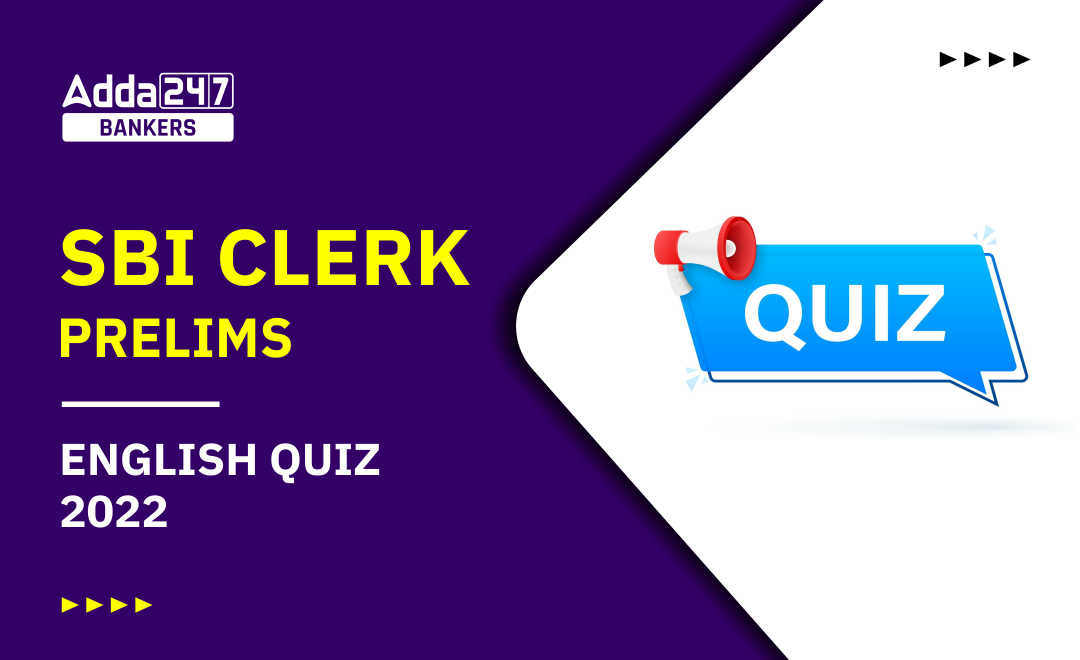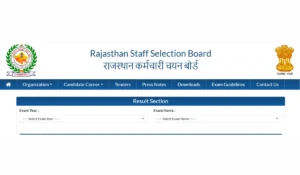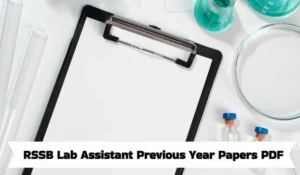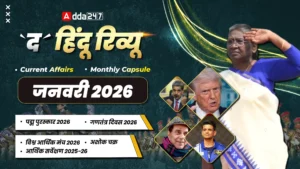TOPIC: Cloze Test, Parajumbles, Word Replacement
Directions (1-5): In the passage given below there are blanks which are numbered from 1 to 10. They are to be filled with the options given below the passage against each of the respective numbers. Find out the appropriate word in each case which can most suitably complete the sentence without altering its meaning. If none of the words given in options fits in, mark ‘None of these’ as your answer choice.
Q1. The ban on civilian traffic for two days a week on the 271-km stretch of National Highway 44 between Udhampur in Jammu and Baramulla in Kashmir, which came into force on April 7, is an ill-advised move. The ban, which is to last till May 31, is supposedly to (1)……………… the orderly conduct of the Lok Sabha elections in Jammu and Kashmir, in the light of the tragic February 14 suicide attack on a CRPF convoy on NH 44 at Pulwama, that killed 40 (2)……………… . On Sundays and Wednesdays, between 4 a.m. and 5 p.m., only pre-determined categories of civilian traffic will be allowed on the highway with clearance from the authorities. For the rest of the time, the highway will be given over to the movement of troops. As a measure to prevent another Pulwama-type attack, this is draconian. NH 44 is the lifeline of the State — it is (3)……………. to move goods (including perishable agricultural produce), and along it lie many educational and medical institutions. In many cases, avoiding the stretch would greatly multiply the time and distance between two points. The government is at pains to emphasise that (4)…………….. are in place for those in medical emergencies, lawyers, doctors, tourists, government employees, students, and so on. But such a system of permits and bans militates against the freedom of movement at the heart of a democratic society. To be sure, even before the ban, civilian traffic has not moved on the highway (5)……………….. by checks. Such is the security challenge in J&K. But to officially segregate civilian traffic is to put people’s lives at the mercy of a calendar, and to invite confusion about the organising principles of Indian troop deployment.
(a) hindrance
(b) enable
(c) maintains
(d) enforced
(e) restoring
Q2. The ban on civilian traffic for two days a week on the 271-km stretch of National Highway 44 between Udhampur in Jammu and Baramulla in Kashmir, which came into force on April 7, is an ill-advised move. The ban, which is to last till May 31, is supposedly to (1)……………… the orderly conduct of the Lok Sabha elections in Jammu and Kashmir, in the light of the tragic February 14 suicide attack on a CRPF convoy on NH 44 at Pulwama, that killed 40 (2)……………… . On Sundays and Wednesdays, between 4 a.m. and 5 p.m., only pre-determined categories of civilian traffic will be allowed on the highway with clearance from the authorities. For the rest of the time, the highway will be given over to the movement of troops. As a measure to prevent another Pulwama-type attack, this is draconian. NH 44 is the lifeline of the State — it is (3)……………. to move goods (including perishable agricultural produce), and along it lie many educational and medical institutions. In many cases, avoiding the stretch would greatly multiply the time and distance between two points. The government is at pains to emphasise that (4)…………….. are in place for those in medical emergencies, lawyers, doctors, tourists, government employees, students, and so on. But such a system of permits and bans militates against the freedom of movement at the heart of a democratic society. To be sure, even before the ban, civilian traffic has not moved on the highway (5)……………….. by checks. Such is the security challenge in J&K. But to officially segregate civilian traffic is to put people’s lives at the mercy of a calendar, and to invite confusion about the organising principles of Indian troop deployment.
(a) employed
(b) personal
(c) teaming
(d) visiting
(e) personnel
Q3. The ban on civilian traffic for two days a week on the 271-km stretch of National Highway 44 between Udhampur in Jammu and Baramulla in Kashmir, which came into force on April 7, is an ill-advised move. The ban, which is to last till May 31, is supposedly to (1)……………… the orderly conduct of the Lok Sabha elections in Jammu and Kashmir, in the light of the tragic February 14 suicide attack on a CRPF convoy on NH 44 at Pulwama, that killed 40 (2)……………… . On Sundays and Wednesdays, between 4 a.m. and 5 p.m., only pre-determined categories of civilian traffic will be allowed on the highway with clearance from the authorities. For the rest of the time, the highway will be given over to the movement of troops. As a measure to prevent another Pulwama-type attack, this is draconian. NH 44 is the lifeline of the State — it is (3)……………. to move goods (including perishable agricultural produce), and along it lie many educational and medical institutions. In many cases, avoiding the stretch would greatly multiply the time and distance between two points. The government is at pains to emphasise that (4)…………….. are in place for those in medical emergencies, lawyers, doctors, tourists, government employees, students, and so on. But such a system of permits and bans militates against the freedom of movement at the heart of a democratic society. To be sure, even before the ban, civilian traffic has not moved on the highway (5)……………….. by checks. Such is the security challenge in J&K. But to officially segregate civilian traffic is to put people’s lives at the mercy of a calendar, and to invite confusion about the organising principles of Indian troop deployment.
(a) trivial
(b) unsure
(c) vital
(d) energise
(e) affection
Q4. The ban on civilian traffic for two days a week on the 271-km stretch of National Highway 44 between Udhampur in Jammu and Baramulla in Kashmir, which came into force on April 7, is an ill-advised move. The ban, which is to last till May 31, is supposedly to (1)……………… the orderly conduct of the Lok Sabha elections in Jammu and Kashmir, in the light of the tragic February 14 suicide attack on a CRPF convoy on NH 44 at Pulwama, that killed 40 (2)……………… . On Sundays and Wednesdays, between 4 a.m. and 5 p.m., only pre-determined categories of civilian traffic will be allowed on the highway with clearance from the authorities. For the rest of the time, the highway will be given over to the movement of troops. As a measure to prevent another Pulwama-type attack, this is draconian. NH 44 is the lifeline of the State — it is (3)……………. to move goods (including perishable agricultural produce), and along it lie many educational and medical institutions. In many cases, avoiding the stretch would greatly multiply the time and distance between two points. The government is at pains to emphasise that (4)…………….. are in place for those in medical emergencies, lawyers, doctors, tourists, government employees, students, and so on. But such a system of permits and bans militates against the freedom of movement at the heart of a democratic society. To be sure, even before the ban, civilian traffic has not moved on the highway (5)……………….. by checks. Such is the security challenge in J&K. But to officially segregate civilian traffic is to put people’s lives at the mercy of a calendar, and to invite confusion about the organising principles of Indian troop deployment.
(a) exceptions
(b) accepting
(c) changed
(d) prevent
(e) strict
Q5. The ban on civilian traffic for two days a week on the 271-km stretch of National Highway 44 between Udhampur in Jammu and Baramulla in Kashmir, which came into force on April 7, is an ill-advised move. The ban, which is to last till May 31, is supposedly to (1)……………… the orderly conduct of the Lok Sabha elections in Jammu and Kashmir, in the light of the tragic February 14 suicide attack on a CRPF convoy on NH 44 at Pulwama, that killed 40 (2)……………… . On Sundays and Wednesdays, between 4 a.m. and 5 p.m., only pre-determined categories of civilian traffic will be allowed on the highway with clearance from the authorities. For the rest of the time, the highway will be given over to the movement of troops. As a measure to prevent another Pulwama-type attack, this is draconian. NH 44 is the lifeline of the State — it is (3)……………. to move goods (including perishable agricultural produce), and along it lie many educational and medical institutions. In many cases, avoiding the stretch would greatly multiply the time and distance between two points. The government is at pains to emphasise that (4)…………….. are in place for those in medical emergencies, lawyers, doctors, tourists, government employees, students, and so on. But such a system of permits and bans militates against the freedom of movement at the heart of a democratic society. To be sure, even before the ban, civilian traffic has not moved on the highway (5)……………….. by checks. Such is the security challenge in J&K. But to officially segregate civilian traffic is to put people’s lives at the mercy of a calendar, and to invite confusion about the organising principles of Indian troop deployment.
(a) unfettered
(b) alleged
(c) refute
(d) restraining
(e) liberation
Directions (6-10): Rearrange the following sentences (A), (B), (C), (D) and (E) in the proper sequence to form a meaningful paragraph and then answer the questions given below.
(A) Immediately and without warning, he ordered fire to be opened on the crowd. The firing of 1,650 rounds was deliberate and targeted, using powerful rifles at virtually pointblank range. The “suffering caused” included several hundred dead and many times more wounded.
(B) Non-Indian writers place the number killed at anything between 500 to 600, with three times that number wounded.
(C) On April 13, 1919, Baisakhi day, following unrest in Amritsar after protests against the Rowlatt Act, Brigadier General (temporary rank) Reginald Dyer took a strike force of 50 rifles and 40 khukri-wielding Gurkhas into an enclosed ground, Jallianwala Bagh, where a peaceful public meeting of 15,000-20,000 was being held.
(D) More was to follow after the proclamation, two days after the massacre, of Martial Law in Punjab: the infamous crawling order, the salaam order, public floggings, arbitrary arrests, torture and bombing of civilians by airplanes — all under a veil of strictly enforced censorship
(E) The officially accepted figure of 379 dead is a gross underestimate. Eyewitness accounts and information collected by Sewa Samiti, a charity organisation point to much higher numbers.
Q6. Which of the following is the SECOND sentence after rearrangement?
(a) A
(b) B
(c) C
(d) D
(e) E
Q7. Which of the following is the FOURTH sentence after rearrangement?
(a) A
(b) B
(c) C
(d) D
(e) E
Q8. Which of the following is the THIRD sentence after rearrangement?
(a) A
(b) B
(c) C
(d) D
(e) E
Q9. Which of the following is the LAST sentence after rearrangement?
(a) A
(b) B
(c) C
(d) D
(e) E
Q10. Which of the following is the FIRST sentence after rearrangement?
(a) A
(b) B
(c) C
(d) D
(e) E
Directions (11-15): In each of the following questions four words are given in bold. Which of the following words must replace each other so that the sentence becomes contextually correct and meaningful? If the sentence is correct as it is, choose option (e) as your answer.
Q11. For Indians, the massacre that (1) slaughter strong emotions is not Nader Shah’s (2) evokes of 30,000 people in Delhi in 1739 but Jallianwala Bagh in Amritsar, where, a century ago, on April 13, troops (3)commanded by General Dyer fired into an unarmed crowd, (4)killing hundreds.
(a) 1-2
(b) 2-4
(c) 1-4
(d) 3-4
(e) No change required
Q12. (1)Many massacres in history (2)fade while some (3) grisly as (4) linger curiosities.
(a) 1-2
(b) 2-4
(c) 1-4
(d) 3-4
(e) No change required
Q13. The key elements of (1)protection in a heat wave are avoiding (2)exposure during the hottest part of the day around noon, especially in the case of senior citizens, staying (3)adequately hydrated, wearing suitable clothing including (4)headgear and creating shade in public places.
(a) 1-2
(b) 2-4
(c) 1-4
(d) 3-4
(e) No change required
Q14. Air pollution management is (1)emerging as one of the biggest (2) outcomes India faces today given its (3)impact on health (4) challenges and the economy.
(a) 1-2
(b) 2-4
(c) 1-4
(d) 3-4
(e) No change required
Q15. Our eyes could (1) indicate as a window to show how stressed we are, say scientists who found that pupil (2)dilation can be used to (3) serve the mental workload of a person when they (4)multitask.
(a) 1-3
(b) 2-4
(c) 1-4
(d) 3-4
(e) No change required
Solutions:
S1. Ans.(b)
Sol. ‘Enable’ is grammatically and contextually fit for the blank.
S2. Ans.(e)
Sol. ‘Personnel’ means people employed in an organization or engaged in an organized undertaking such as military service.
S3. Ans.(c)
Sol. Vital: absolutely necessary; essential.
S4. Ans.(a)
Sol. “Exceptions” is grammatically and contextually fit for the blank.
S5. Ans.(a)
Sol. ‘Unfetter’ means release from restraint or inhibition. As the sentence is in past tense, ‘unfettered’ will be used here.
S6. Ans.(a)
Sol. The correct rearrangement is CAEBD.
S7. Ans.(b)
Sol. The correct rearrangement is CAEBD.
S8. Ans.(e)
Sol. The correct rearrangement is CAEBD.
S9. Ans.(d)
Sol. The correct rearrangement is CAEBD.
S10. Ans.(c)
Sol. The correct rearrangement is CAEBD.
S11. Ans.(a)
Sol. Replace “slaughter-evokes’ with each other to form a meaningful sentence.
S12. Ans.(d)
Sol. Replace “grisly-linger” with each other to form a meaningful sentence. ‘Grisly’ is an adjective which means causing horror or disgust.
S13. Ans.(e)
Sol. No change required.
S14. Ans.(b)
Sol. Replace “outcomes-challenges” with each other to form a meaningful sentence.
S15. Ans.(a)
Sol. Replace “indicate-serve” with each other to form a meaningful sentence.



 RSSB Jamadar Grade-2 Result 2025-26 (OUT...
RSSB Jamadar Grade-2 Result 2025-26 (OUT...
 RSSB Lab Assistant Previous Year Questio...
RSSB Lab Assistant Previous Year Questio...
 Hindu Review January 2026: हिंदू रिव्यू ...
Hindu Review January 2026: हिंदू रिव्यू ...










